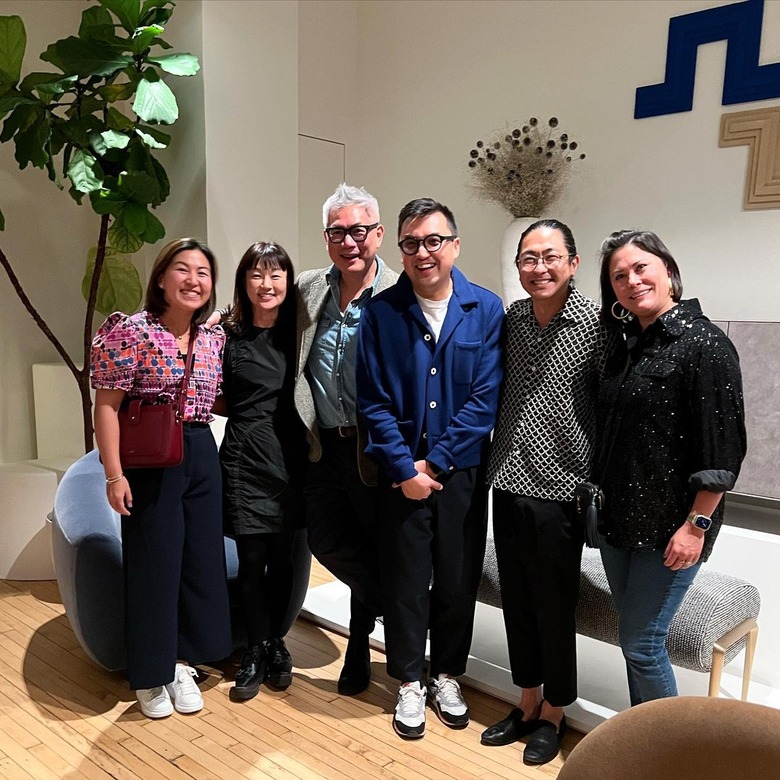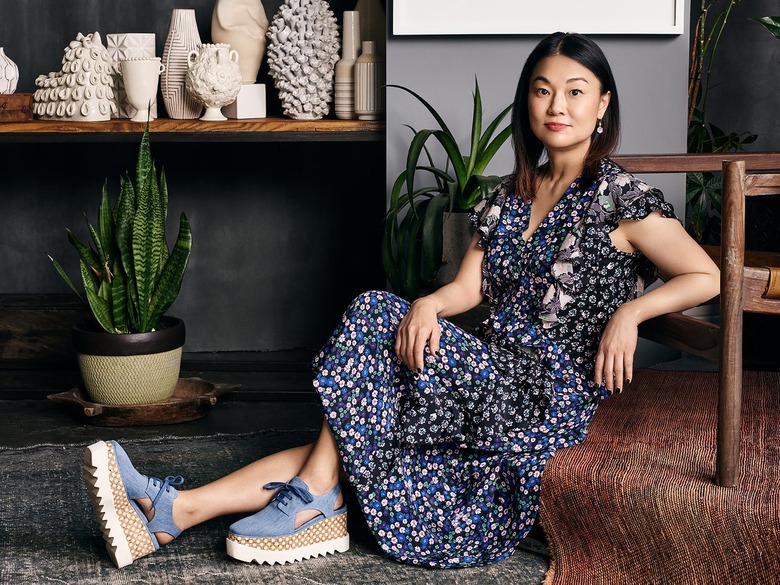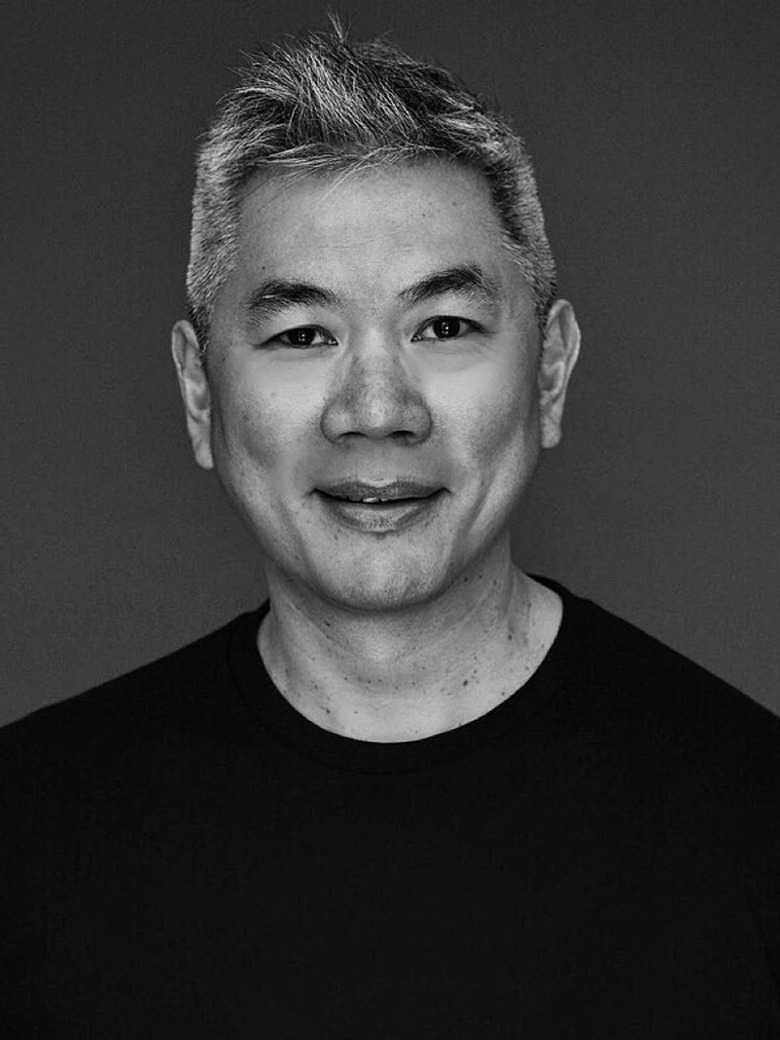How The AAPI Design Alliance Is Empowering AAPI Designers And Makers
In 2020, anti-Asian hate crimes spiked during the height of the COVID-19 pandemic. These awful events spurred the STOP AAPI (Asian American and Pacific Islander) Hate movement, which manifested in myriad forms: book lists by AAPI authors; roundups of AAPI businesses; and greater recognition of AAPI Heritage Month, which is observed in the month of May.
For interior designers Young Huh and Jessica Davis of Atelier Davis, those same hate crimes inspired them to create the Asian American Pacific Islander Design Alliance (AAPIDA), an organization and collective that supports AAPI professionals within the design and home industry. It started when Huh organized a call with Davis and creatives Go Kasai, William Li, Benjamin Reynaert, Jean Liu, and Joanne Hallare, co-founder of Dowel Furniture. Eventually, this group would become the alliance's founding members.
"When we [first] got together and started talking about our individual experiences, we realized that we each experienced incidents of racism [and] exclusion and [had] difficulties moving forward in our careers," Huh tells Hunker. "We wanted to be able to talk openly about some of these challenges and be supportive of conversations that need to happen between industry partners and designers and makers."
"When we [first] got together and started talking about our individual experiences, we realized that we each experienced incidents of racism [and] exclusion and [had] difficulties moving forward in our careers." — Young Huh
Davis further explains, "After moving to Atlanta, I would go to design events and [felt] like the odd man out, [as I wasn't] blonde and white. It also seemed like people didn't take me seriously as a designer because I don't look like your standard 'interior decorator.'" What's more, she saw how other racial groups were organizing alliances within the design industry, such as Black Artists + Designers Guild and Black Interior Designers Network, and thought there should be a space for Asian and Pacific Islander designers as well.
To get started, the founding members of AAPIDA established the group's core pillars: advocacy (for cultural awareness, particularly of AAPI cultures), awareness (by making AAPI professionals in the design industry more visible), collaboration (between AAPI designers, brands, and partners), dialogue (of AAPI experiences in the design industry), and mentorship (for AAPI home and design professionals). From there, the organization took shape around these vital areas, says Huh.
Since its inception in 2020, AAPIDA has made serious moves in empowering Asian, Asian American, and Pacific Islander individuals within the design field. "AAPIDA has really created a warm and welcoming space for AAPIs in the design community," says Davis. "Our events have given us a chance to have dialogues that we wouldn't otherwise have a forum for." For example, through AAPIDA, Davis has been able to connect and collaborate with lighting designer Rosie Li on a project. She's also had the opportunity to mentor a young designer whom she met through another AAPIDA member.
"Our [AAPIDA] events have given us a chance to have dialogues that we wouldn't otherwise have a forum for." — Jessica Davis
On that note, mentorship (one of the group's mission pillars) has been a rewarding component of the organization, says Huh. Currently, the members are working on creating formal mentorship programs, though many have already embraced and offered mentorship to those who have expressed interest, she adds. For instance, "in our office, we've welcomed several designers and artists [who are] early in their careers and [have showed them] how we work, our best practices, how to use our project management software, and the like while keeping the door open for a continued dialogue," shares Huh.
Needless to say, AAPIDA has been a valuable resource for AAPI designers since it was created — and it's just getting started. Not only do the founders want to grow the group across the country but they're also looking to enter the education space and help younger generations who are interested in the design field, Davis reveals.
When asked about the group's plans for the future, Huh shares that AAPIDA will be taking part in various design events and programs. This includes the 2023 Design on a Dime Fundraiser, which will benefit Housing Works' health care and housing initiatives for those living with HIV and other chronic illnesses, says Huh. "The AAPIDA vignette will showcase truly show-stopping sculpture, artwork, and furnishings from [more than] 20 of our alliance members," she adds. Other events on AAPIDA's 2023 itinerary include La Cienega Design Quarter in Los Angeles and NYCxDESIGN, an annual design festival known as "NYC's official celebration of design."
Looking beyond 2023, the founding members have big plans for the future. In addition to establishing formal mentorship programs and organizing chapters across the country, they plan to take part in more public-facing events where they can highlight the contributions their members and colleagues have made to the design community, says Huh. The collective also hopes to raise awareness for both the organization and its members via concentrated public relations efforts along with new platforms for dialogue and collaborations.
After all, as AAPI individuals continue to face injustices both in and out of the design industry, finding a supportive community has become crucial for the success of AAPI professionals. "It's important to come together as a group [and] have our voice heard," Davis tells Hunker. Furthermore, having an established alliance and forum will allow AAPI designers to highlight inequities; find support; and most of all, celebrate each other's successes and triumphs, adds Davis. It's safe to say that AAPIDA has done — and will continue to do — just that.



